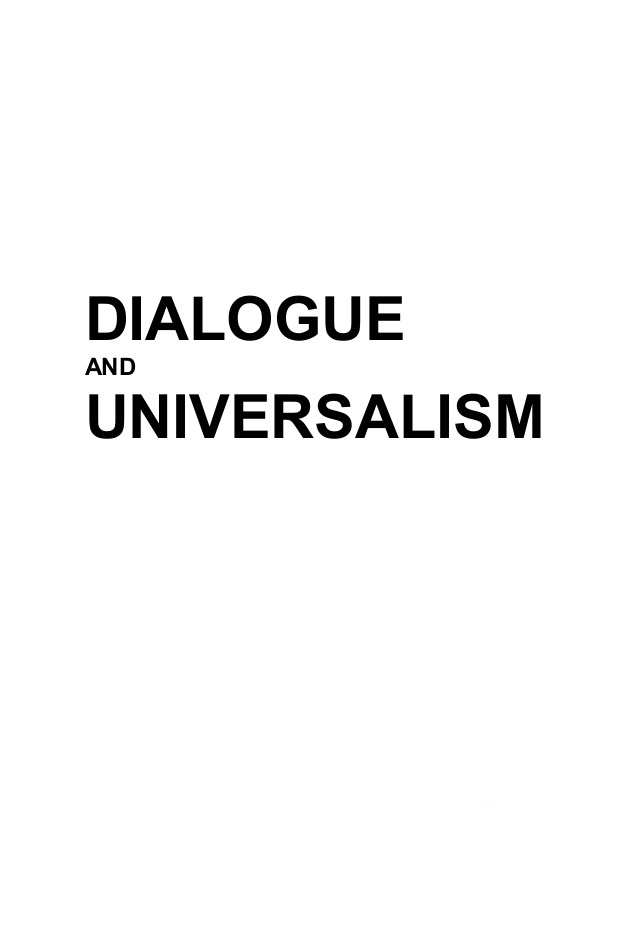TOWARD A CRITIQUE OF NATIONALISM AS A THEORY
OF THE NATION-STATE
TOWARD A CRITIQUE OF NATIONALISM AS A THEORY
OF THE NATION-STATE
Author(s): Manjulika GhoshSubject(s): Social Philosophy, Sociology
Published by: Instytut Filozofii i Socjologii Polskiej Akademii Nauk i Fundacja Filozofia na Rzecz Dialogu
Keywords: Nationalism; nation-state; Rabindranath Tagore; Hannah Arendt; populism; protectionism; migration; universalism
Summary/Abstract: The concern of this paper is to critique the political conception of nationalism as atheory of the nation-state. The basic point of the critique is that when the interests of thenation and the principles of the state coincide there emerges a fierce sense of nationalidentity which endangers moral indifference to outsiders, the people within and outsidethe national boundary, without remorse. Here the attempt to uphold national identity issomething more than nationhood. Besides involving territorial identity, common language,custom and culture essential to the idea of a “nation,” it also upholds the consciousnessof these as determining separate rights and allegiances, the idea of attachmentto a nation and its interests. Such a consciousness can emerge only on the adoptionof certain populist ideas such as racism, ethnicity and even such popular elusivemyths as the “greatness” of a nation, the urge for the maintenance of “national character,”etc. Such “nationalist xenophobia” leads to the intensification of the distinctionbetween the “own” and the “other,” “national” and the “alien,” the “citizen” and the“migrant” leading to “ethnic disharmony,” “colour bias,” hatred and suspicion of personswith whom one has lived closely as neighbours for decades. The most popular isthe economic discourse of the “migrants” putting the “nationals” out of work. All thishas its toll on multi-culturalism and humanitarian concerns. Many affluent nations havebecome cold to human misery, suffering and deaths from wars, terrorism, acute poverty,political persecution, environmental degradation, etc. This has created an “existential”crisis for millions of people on earth.Hence, the paper visualizes that some form of universalism should be revivedagainst extreme individualism of nation-states to envisage the beginning of a new erastronger in the pursuit of justice and more secure in the quest of peace, an era in whichnations of the world can prosper and live in harmony. In developing the critique of thenation-state, this paper has dwelt on the views of Rabindranath Tagore on nationalismand those of Hannah Arendt on the fusion of the state and the nation.
Journal: Dialogue and Universalism
- Issue Year: 2019
- Issue No: 1
- Page Range: 57-66
- Page Count: 10
- Language: English

